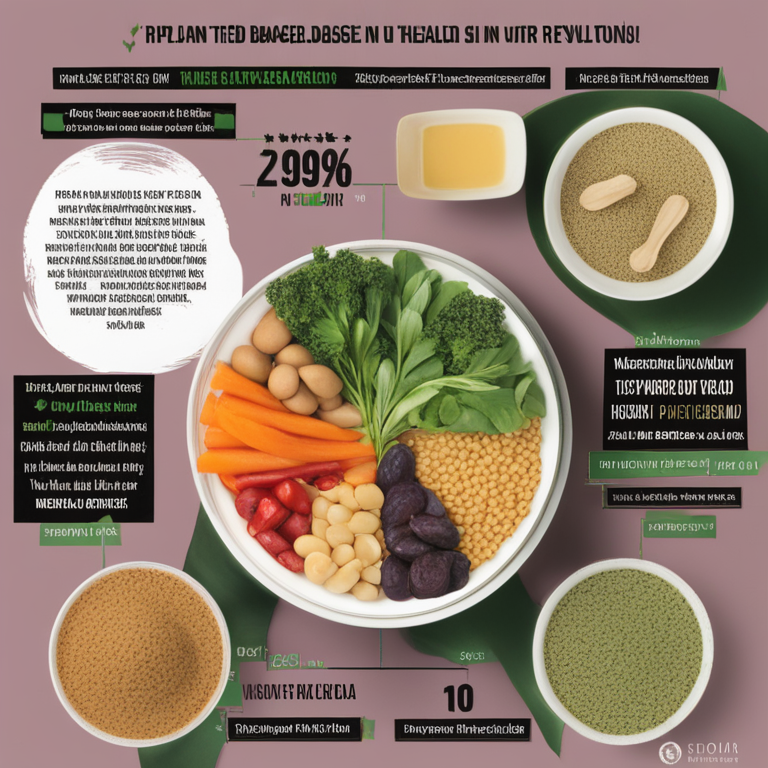Introduction:
India is a country known for its diverse cuisine, rich flavors, and vibrant food culture. Traditionally, Indian diets have been centered around grains, pulses, dairy, and meat. However, in recent years, there has been a noticeable shift towards plant-based diets in the country. This trend is not just a passing fad but a significant health revolution that is changing the way Indians think about food and nutrition.
Subheadings:
1. The Health Benefits of Plant-Based Diets:
Plant-based diets are rich in nutrients, fiber, and antioxidants, which are essential for good health. Numerous studies have shown that a diet high in fruits, vegetables, whole grains, and legumes can help lower the risk of chronic diseases such as heart disease, diabetes, and cancer. By eliminating or reducing the consumption of animal products, individuals can also lower their cholesterol levels, blood pressure, and overall risk of developing lifestyle-related diseases.
2. Environmental Impact:
In addition to the health benefits, plant-based diets are also better for the environment. The production of plant-based foods requires fewer resources such as water, land, and energy compared to animal agriculture. By adopting a plant-based diet, individuals can help reduce their carbon footprint and contribute to sustainability efforts to protect the planet.
3. Cultural Shift:
The rise of plant-based diets in India is not just a health or environmental trend but also a cultural shift. Traditional Indian cuisine already includes a wide variety of plant-based ingredients such as lentils, vegetables, and spices. By promoting plant-based eating, individuals are rediscovering the flavors and diversity of Indian vegetarian cuisine and moving away from the reliance on meat-heavy dishes.
Tips for Adopting a Plant-Based Diet in India:
1. Start slow: Transitioning to a plant-based diet can be challenging, especially if you are used to eating meat regularly. Start by incorporating more plant-based meals into your diet gradually and experiment with new recipes and ingredients.
2. Embrace Indian vegetarian cuisine: Indian cuisine offers a treasure trove of vegetarian dishes that are flavorful, satisfying, and nutritious. Explore dishes such as dal, sabzi, roti, and rice that are rich in plant-based ingredients.
3. Educate yourself: Learn about the health benefits of plant-based diets and the impact of animal agriculture on the environment. Understanding the reasons behind adopting a plant-based diet can help you stay motivated and committed to making the switch.
4. Seek out plant-based alternatives: With the growing popularity of plant-based eating, there are now a variety of plant-based alternatives available in the market, such as plant-based milk, meat substitutes, and dairy-free products. Incorporate these alternatives into your diet to make the transition easier.
Conclusion:
The rise of plant-based diets in India represents a significant health revolution that is reshaping the way Indians eat and think about food. By adopting a plant-based diet, individuals can improve their health, reduce their environmental impact, and explore the diverse and flavorful world of Indian vegetarian cuisine. With the right information, support, and motivation, anyone can make the switch to a plant-based diet and embark on a journey towards better health and well-being.
👉 [Best Deals on Amazon!](https://amzn.to/abcd) | [Flipkart](https://fkrt.it/xyz123)
